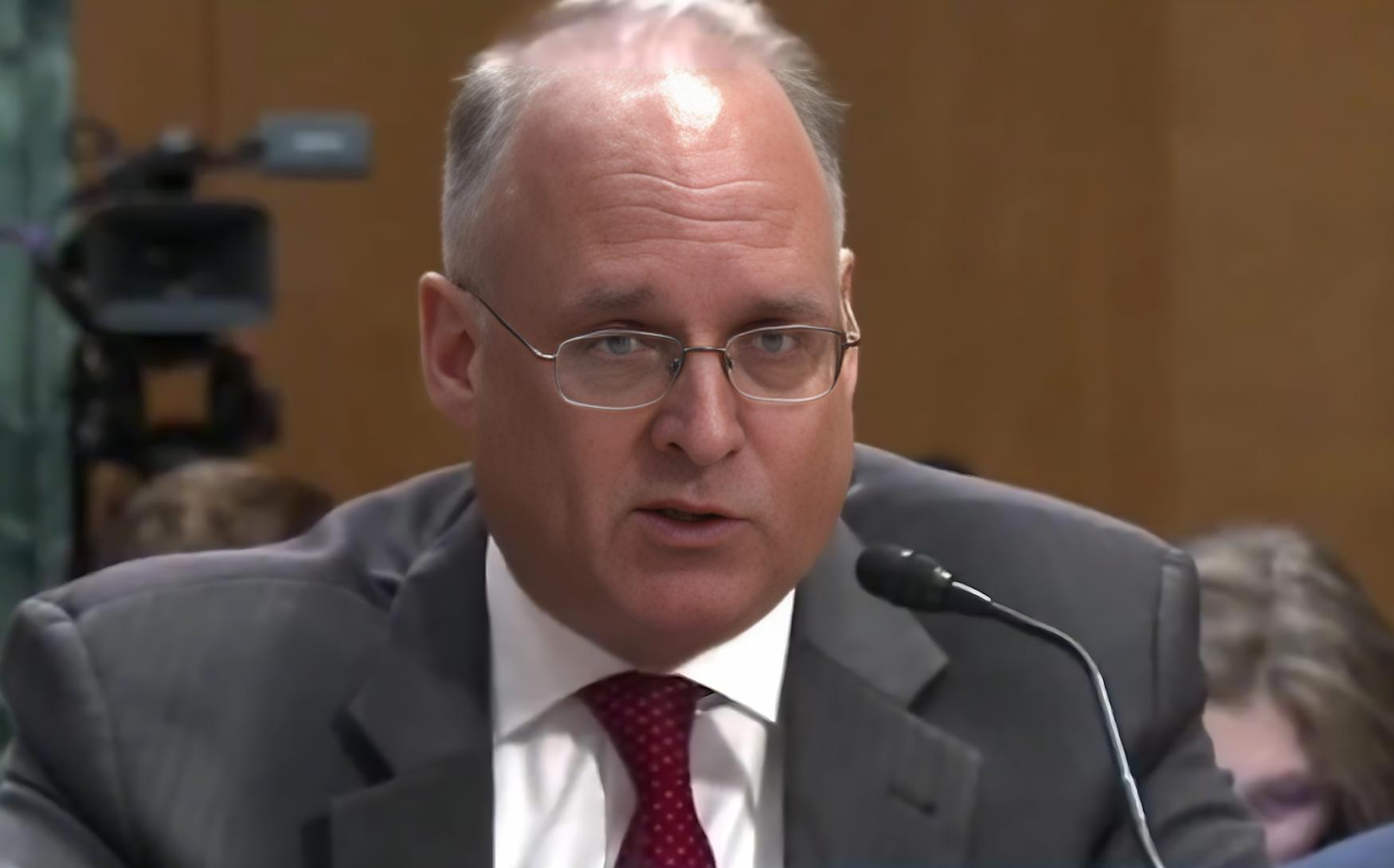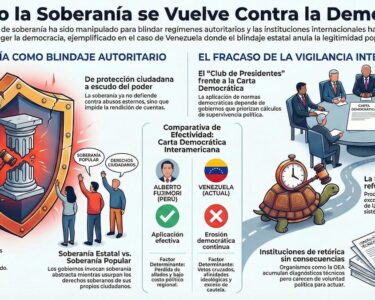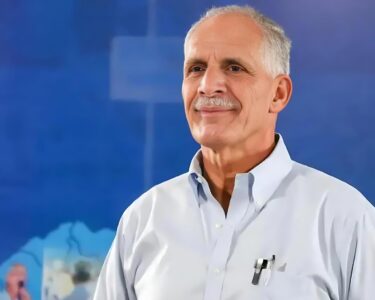Marshall Billingslea, former Assistant Secretary for Terrorist Financing at the U.S. Treasury Department, described the Nicolás Maduro government as a “willing safe haven” for Hezbollah and Hamas operatives
WASHINGTON — Venezuela’s authoritarian regime has allegedly become a strategic ally to Hezbollah, enabling the militant group to expand its operations across Latin America and even reach U.S. soil, according to explosive testimony delivered before the Senate Caucus on International Narcotics Control.
Marshall Billingslea, former Assistant Secretary for Terrorist Financing at the U.S. Treasury Department, described the Nicolás Maduro government as a “willing safe haven” for Hezbollah and Hamas operatives. He warned that Venezuela’s support includes forged travel documents, illicit financial networks, and access to drug trafficking corridors that connect the Middle East to the Western Hemisphere.
“With the deterioration of Hezbollah’s infrastructure in Lebanon and mounting economic pressure on Iran, Latin America has become an increasingly vital source of financing,” Billingslea said.
A Decade of Documented Allegations
According to documentation presented at the hearing, Venezuela issued more than 10,000 passports between 2010 and 2019 to individuals from Syria, Lebanon, and Iran—countries with known ties to Hezbollah and Hamas. Many of these passports were allegedly approved under the supervision of former Vice President Tareck El Aissami, who has long been accused of facilitating Hezbollah-linked activities.
Misael López, a former official at the Venezuelan embassy in Iraq, publicly denounced in 2015 the existence of a passport-selling network, claiming that diplomatic documents were being issued—even to individuals with suspected ties to terrorism—for sums of up to $15,000.
Billingslea claimed these documents allow operatives to move freely across Latin America and, in some cases, enter the United States undetected.
Infrastructure and Economic Integration
The former Treasury official also alleged that Venezuela permitted Hezbollah to establish a paramilitary training center on Margarita Island and awarded contracts to front companies linked to the group as early as 2001. These claims suggest a long-standing pattern of collaboration that has intensified under Maduro’s leadership.
In a striking update, Billingslea cited intelligence reports indicating that approximately 400 Hezbollah commanders have been deployed to South America—primarily Venezuela—since early 2025. The move is seen as a strategic pivot amid growing instability in the Middle East.
International Reaction: Concern, But Limited Action
The international response to these allegations has been cautious but increasingly concerned. While the U.S. has intensified its scrutiny of Venezuela’s ties to Hezbollah, other global actors have responded more quietly:
- United States: Lawmakers and intelligence officials have called for expanded sanctions and deeper counterterrorism cooperation across Latin America. The State Department has reiterated its concerns about Hezbollah’s presence in the region, citing Venezuela as a key facilitator.
- European Union: Although no formal statements have been issued, European security analysts have warned that Venezuelan-issued passports could pose risks to border security, especially if used to enter Europe via Latin American migration routes.
- Latin American Governments: Responses have varied. Some countries have expressed unease about Hezbollah’s growing footprint, but few have directly condemned Venezuela. Regional cooperation on counterterrorism remains fragmented.
- Human Rights and Security Experts: Independent observers have called for greater transparency and international oversight, noting that the alleged passport scheme could undermine global efforts to track terrorist movements.
Despite mounting evidence and testimony, the lack of a unified international response underscores the geopolitical complexity of confronting Venezuela’s alleged role in facilitating terrorism. As Hezbollah deepens its footprint in Latin America, the urgency for coordinated action continues to grow.
He warned that Venezuela’s support includes forged travel documents, illicit financial networks, and access to drug trafficking corridors that connect the Middle East to the Western Hemisphere.
A Decade of Documented Allegations
According to documentation presented at the hearing, Venezuela issued more than 10,000 passports between 2010 and 2019 to individuals from Syria, Lebanon, and Iran—countries with known ties to Hezbollah and Hamas. Many of these passports were allegedly approved under the supervision of former Vice President Tareck El Aissami, who has long been accused of facilitating Hezbollah-linked activities.
Billingslea claimed these documents allow operatives to move freely across Latin America and, in some cases, enter the United States undetected.
A Regional Threat with Global Implications
Billingslea’s testimony paints a picture of Venezuela not just as a passive host, but as an active enabler of transnational terrorism. He urged U.S. and regional authorities to increase coordination and intelligence sharing to counter what he described as Venezuela’s transformation into a “terrorist and criminal operations hub.”
The former Treasury official also alleged that Venezuela permitted Hezbollah to establish a paramilitary training center on Margarita Island and awarded contracts to front companies linked to the group as early as 2001. These claims suggest a long-standing pattern of collaboration that has intensified under Maduro’s leadership.
In a striking update, Billingslea cited intelligence reports indicating that approximately 400 Hezbollah commanders have been deployed to South America—primarily Venezuela—since early 2025. The move is seen as a strategic pivot amid growing instability in the Middle East.
Billingslea’s testimony paints a picture of Venezuela not just as a passive host, but as an active enabler of transnational terrorism. He urged U.S. and regional authorities to increase coordination and intelligence sharing to counter what he described as Venezuela’s transformation into a “terrorist and criminal operations hub.
The allegations, if substantiated, could have far-reaching implications for hemispheric security, immigration policy, and counterterrorism strategy. As Latin America becomes a more critical node in Hezbollah’s global network, the urgency to respond —diplomatically and operationally— continues to mount.
In his remarks, Billingslea went beyond general criticism of regional corruption and directly alleged that Petro’s 2022 presidential campaign benefited from illicit Venezuelan funds. He framed this claim as part of a broader pattern in which the Maduro government sought to extend its influence abroad by channeling resources into sympathetic political movements. While the statement drew attention in both Colombia and the United States, it remains an allegation rather than a judicially established fact, underscoring the politically charged nature of such accusations.
The U.S. State Department considers Nicolas Maduro to be a politician linked to drug trafficking, a leader of the Cartel of the Suns, and a collaborator of armed groups such as the FARC in Colombia. The Southern District of New York accuses him of narcoterrorism, conspiracy to import cocaine, and possession of destructive weapons, among other crimes.
The United States is offering a $50 million reward for information leading to his capture and conviction. Meanwhile, Petro denies any electoral fraud and rejects the reward imposed on Maduro, asserting that his election was legitimate.






